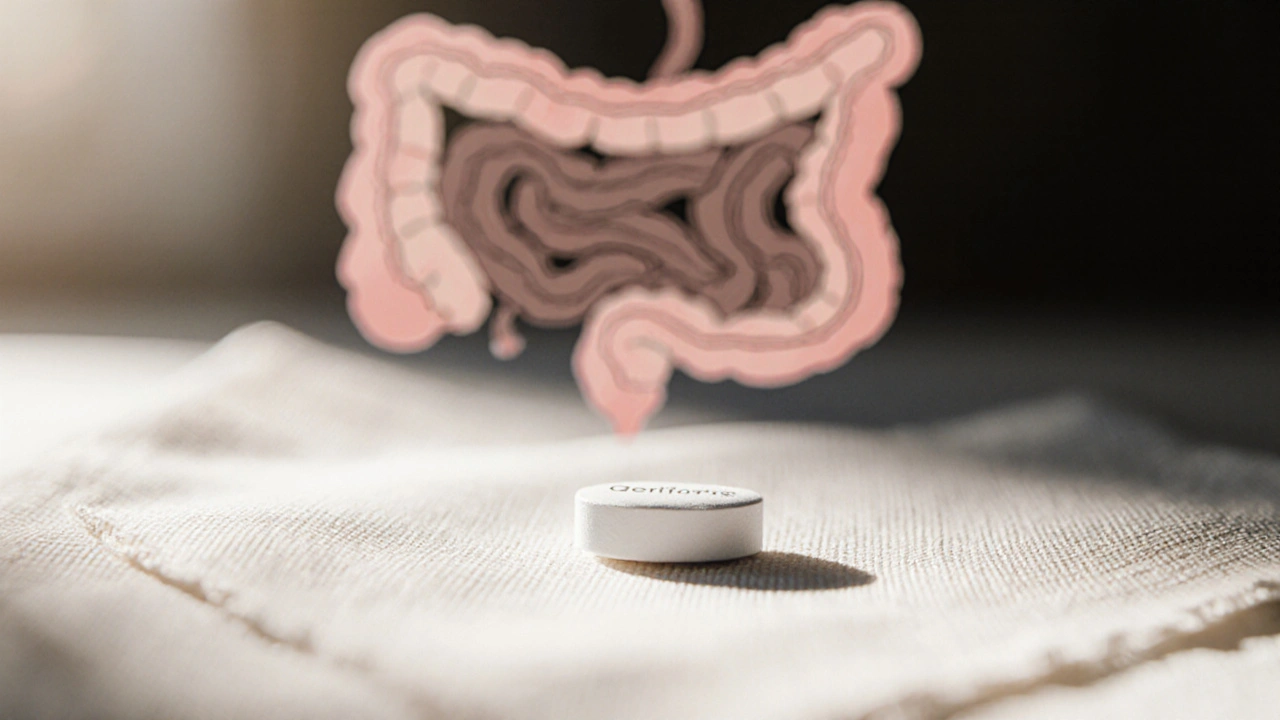Living with inflammatory bowel disease (IBD) can feel like a constant balancing act. The good news is that you don’t have to rely on a single approach. A mix of medicines, food choices, and daily habits can keep flare‑ups in check and improve quality of life. Below we break down the most common options so you can pick what fits your body and schedule.
Doctors usually start with aminosalicylates such as mesalamine. These pills or rectal sprays calm mild inflammation and are easy to take. If symptoms creep up, short courses of corticosteroids like prednisone can bring fast relief, but they’re not meant for long‑term use because of side‑effects.
When inflammation stays stubborn, immunomodulators (azathioprine, 6‑mercaptopurine) step in. They work by dialing down the immune system over weeks or months, so patience is key. Biologic drugs—adalimumab, infliximab, ustekinumab—target specific proteins that drive inflammation. They’re given by injection or infusion and have changed the outlook for many people with moderate to severe Crohn’s or ulcerative colitis.
Newer small‑molecule oral drugs like tofacitinib and upadacitinib offer another route for those who can’t tolerate biologics. They’re taken daily and block the same pathways, but they also carry infection risks that need monitoring.
Sometimes surgery becomes the safest option, especially when a damaged section of bowel causes pain, bleeding, or severe narrowing. Removing the problem area can give lasting relief, but it’s a big decision that requires a thorough discussion with your surgeon.
Food isn’t a cure, but what you eat can trigger or soothe flare‑ups. A low‑residue or low‑fiber diet often helps during active disease because it reduces stool bulk and eases bowel movements. Keep a simple food diary: note what you eat, how you feel, and any symptoms that follow. Over time you’ll spot patterns and can avoid personal triggers.
Probiotic supplements and fermented foods (yogurt, kefir, sauerkraut) may support gut bacteria, though results vary. Aim for a balanced diet rich in lean protein, easily digestible carbohydrates, and healthy fats. If you’re low on calories during a flare, consider nutrition shakes or smoothies to keep weight stable.
Stress management isn’t optional. Anxiety and lack of sleep can worsen inflammation. Simple habits—daily walks, breathing exercises, or short meditation sessions—have been shown to lower flare frequency for many patients.
Regular check‑ups with your gastroenterologist are essential. Blood tests, stool studies, and occasional imaging let your doctor adjust treatment before a flare spirals out of control. Keep a list of medications, doses, and any side‑effects; it makes visits smoother and helps catch problems early.
Bottom line: IBD control usually requires a toolbox, not a single key. Talk openly with your healthcare team, track how you feel, and stay flexible. With the right mix of meds, food choices, and lifestyle tweaks, many people keep their disease in the background and live full, active lives.

A detailed comparison of Geriforte with other ulcerative colitis drugs, covering dosing, side effects, costs, and how to choose the right treatment.
read more